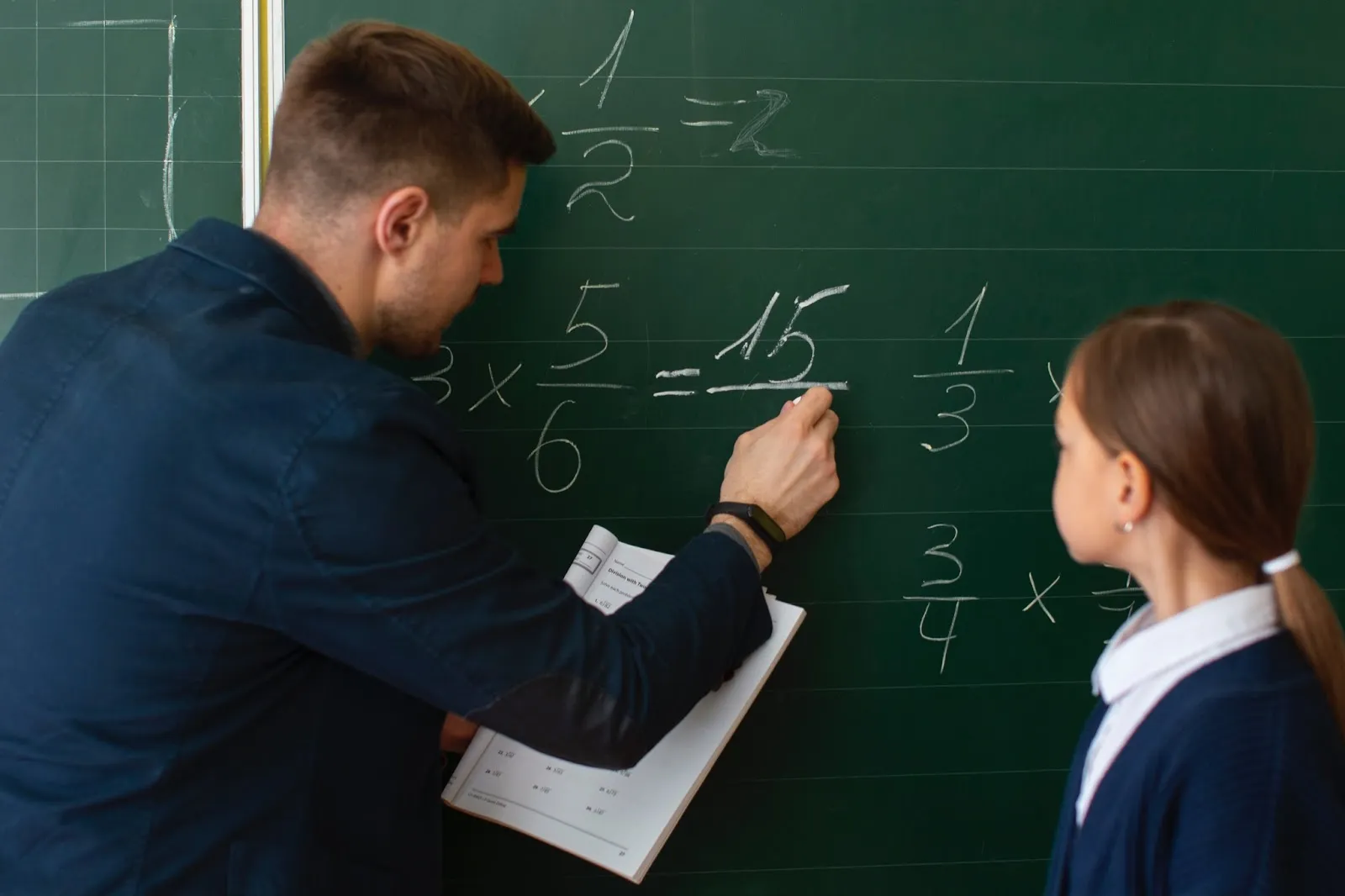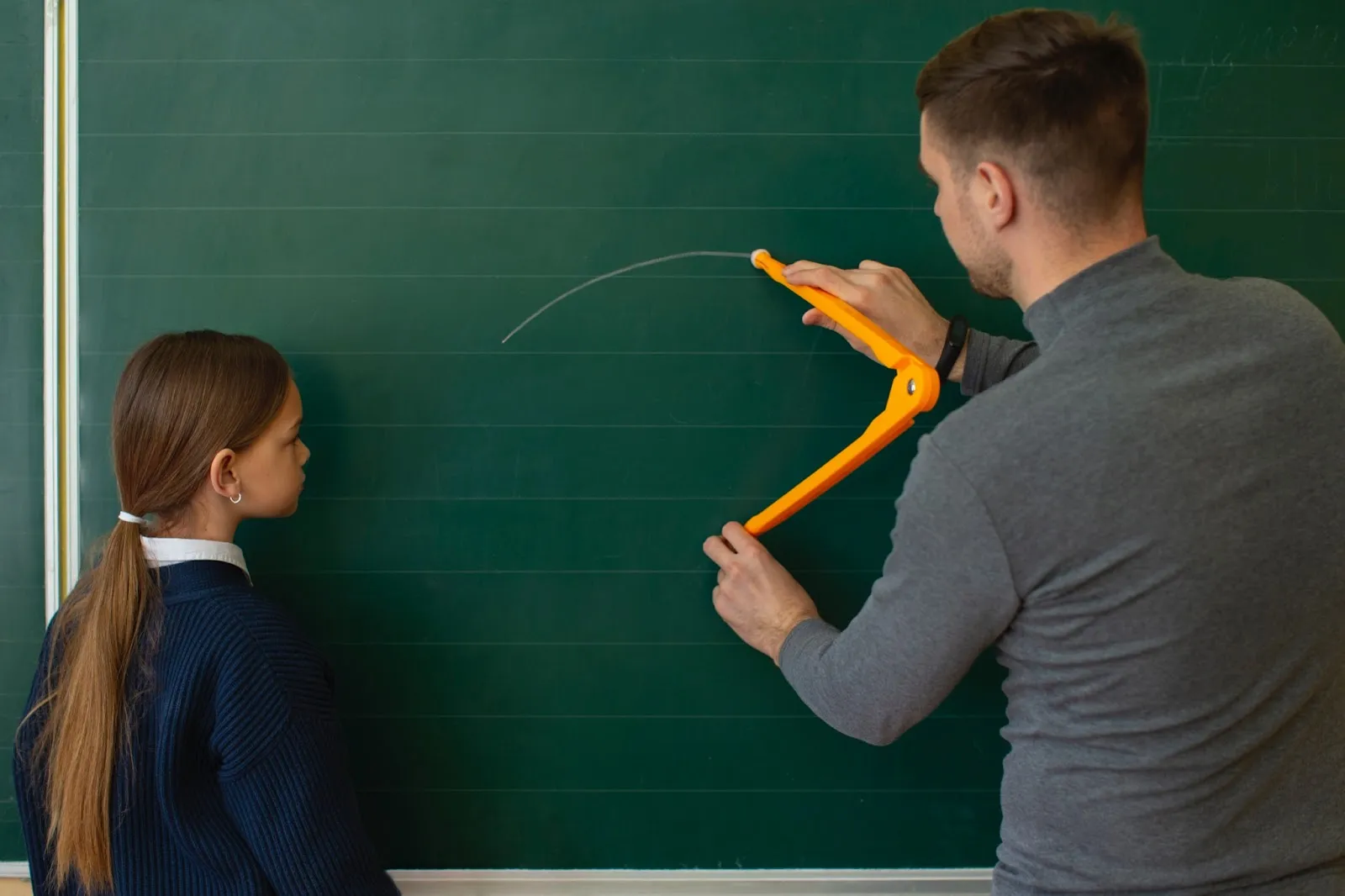
77.32% of parents see better grades in 3 months!
We all have had that one teacher who truly understood us for who we were. In a sea of students, that one-on-one connection with that teacher is what turned learning from a chore into a lifelong passion. That’s the power of individual attention.
Now what if parents could give the same experience to their child——truly memorable & transformative?
As parents, everyone wants the best for their children, especially when it comes to their education. We dream of seeing them excel, not just academically, but also as well-rounded individuals.
But in today’s fast-paced, tech-driven world, classrooms often resemble crowded buses during rush hour. Only a few schools have a strict policy of having less strength in the classroom to ensure every child’s struggles are addressed. But schools that enroll as many students as they can, there are high chances your child might feel lost in the shuffle, just another face in the crowd.
Which is why, as parents, we need to be fully engaged in our child’s education, making sure they never feel overlooked or left behind. And that’s where the magic of individual attention comes into play.
But what exactly does individual attention mean, and why is it so crucial?
The One-on-One Tutoring Magic

Imagine taking your child to their favorite restaurant where the chef remembers their preferred dish exactly how they like it—extra cheese, no onions, and a sprinkle of love.
That’s the kind of personalized care we’re talking about. Just like a chef customizes a meal to match individual tastes, individual attention in the classroom means a teacher tailors their approach to fit each student's unique needs.
Think back to your own school days, when a teacher took extra time to help you with a tricky math problem or encouraged you to shine in a subject you loved? Maybe it was Mrs. Johnson who helped you grasp algebra or Mr. Brown who saw your passion for art and gave you extra projects. That personal touch made all the difference, didn’t it?
In a classroom setting, individual attention or as we like to address it- one-on-one magic could mean a teacher sitting down with a student who is struggling with a math problem, offering encouragement to a child who is shy about participating, or simply taking the time to understand a student's personal challenges. It's about recognizing that each child is different. ensuring they feel seen and receive the support they need to thrive.
Also Read: How Tutoring Benefits Students And Sparks Success
Why Every Child Deserves The Spotlight?
Let’s start with the obvious—academic performance!
Imagine your child, let’s call him Max, who has been struggling with reading.
He’s bright, curious, and loves stories, but somehow, reading just doesn’t click for him the way it does for his peers. He starts to feel frustrated, and that frustration turns into avoidance. If left unchecked, Max might begin to associate school with failure, leading to a downward spiral in his academic journey.
Now, picture a different scenario where Max’s teacher notices his struggle early on.
She takes the time to work with him one-on-one, identifying that Max might just need a different approach, maybe phonics isn’t working, but a more visual method might.
With consistent individual attention, Max starts to improve. He gains confidence, begins to enjoy reading, and that initial struggle turns into a story of success.
Studies have shown that students who receive individualized instruction often perform better academically. This highlights that tailored teaching strategies can help close learning gaps, particularly for students who may be falling behind.
When teachers address the specific needs of each student, they’re not just teaching a subject—they’re nurturing a child’s inner talent and potential. And this is exactly what we do at Mentor Match! Catering to every child’s unique needs and struggles!
Building Confidence and Self-Esteem
Beyond academics, individual attention plays a pivotal role in building a child’s confidence and self-esteem.
Think about Emma, a child who is naturally introverted. She’s intelligent and creative but tends to shy away from speaking up in class. Without individual attention, her talents might go unnoticed. She could begin to feel like her voice doesn’t matter, leading to a lack of confidence that could affect her in all areas of life.
Now, after noticing and reading Emma, her teacher takes the time to recognize her strengths. She notices Emma’s detailed artwork and encourages her to present her projects to the class, starting in small groups. With gentle guidance, Emma begins to feel more comfortable expressing herself. Her confidence grows, not just in art, but in other subjects too. By the end of the school year, Emma is participating more actively, and her self-esteem has blossomed.
When teachers give individual attention, they’re telling children, “You matter. Your thoughts, ideas, and feelings are important.” This message is powerful.
It’s the difference between a child who feels invisible and one who feels valued and capable.
Addressing Social and Emotional Needs
Children are not just mini-adults focused solely on academics. They are complex individuals with social and emotional needs that are just as important as their intellectual growth.
Take Jake, for example. Jake is a good student, but lately, he’s been quieter than usual, withdrawing from his friends and not engaging in class activities as much. A teacher who is attentive to individual needs might notice these subtle changes and take the time to talk with Jake. It turns out that Jake is struggling emotionally, and he’s feeling overwhelmed but doesn’t know how to express it.
By giving Jake individual attention, the teacher can offer support—perhaps by connecting him with the school counselor or simply being a reassuring presence in his life.
In a bustling classroom, these needs can often be overlooked, especially when a child is quiet or well-behaved. However, individual attention allows teachers to tune into these less obvious aspects of a child’s development.
This kind of attention helps children navigate the emotional ups and downs of life, teaching them resilience and coping skills that are just as important as academic knowledge.
Igniting The Spark, One Curious Mind At a Mind!

One of the greatest gifts a teacher can give a student is a love for learning. But fostering this passion often requires individual attention. When teachers understand what excites a student, they can tailor lessons to tap into that curiosity.
For example, a student named Sarah, who struggles with science but has a deep love for animals.
Her teacher, recognizing this, might incorporate animal-related examples into science lessons or recommend books about wildlife. By connecting the subject matter to Sarah’s interests, the teacher helps her see the relevance of what she’s learning, sparking a genuine interest in science.
This approach can make all the difference. When children feel that their interests and passions are recognized and valued, they’re more likely to engage with the material.
Also Read: Academic Blues: 5 Ways To Help Your Child With Academic Burnouts
The Role of Parents in Supporting Individual Attention
As a parent, you might wonder, “What can I do to ensure my child receives the individual attention they need?”
The answer lies in being proactive and engaged in your child’s education.
Start by maintaining open communication with your child’s teachers. Regularly check in to discuss your child’s progress, academically, socially, and emotionally. Share any concerns you might have and ask about how the teacher tailors their approach to meet your child’s needs.
As it goes without saying, teachers and parents are partners in a child’s education. If they’re struggling with a particular subject or feeling left out in class, being aware of these issues allows you to address them early on. Sometimes, all it takes is a little encouragement from home to help a child open up to their teacher and ask for the help they need.
Plus, you can support individual attention at home by providing a learning environment that complements what your child is experiencing in the classroom. This might mean setting aside quiet time for reading, engaging in educational activities that align with their interests, or simply being there to listen when they need to talk about their day.
Overcoming the Challenges of Providing Individual Attention
Of course, we can’t ignore the fact that providing individual attention in the classroom comes with its challenges. With large class sizes, limited resources, and diverse student needs, it’s not always easy for teachers to give every child the time they deserve. However, this doesn’t mean it’s impossible.
Innovative teaching strategies and tools can help bridge the gap. For instance, technology can be a valuable ally. Educational software, apps and platforms such as Mentor Match that adapt to each student’s learning pace can provide personalized instruction even in a large classroom setting.
Group work and peer mentoring can also be effective, allowing students to receive more individualized guidance while teachers manage the broader classroom dynamics.
As parents, supporting teachers in their efforts to provide individual attention is crucial. This might mean advocating for smaller class sizes, volunteering in the classroom, or simply showing appreciation for the hard work teachers do every day.
Conclusion
To all the parents reading this, your role in advocating for and supporting individual attention in the classroom is crucial.
Stay engaged, communicate with your child’s teachers, and most importantly, be there for your child. Together, parents and teachers can ensure that every child receives the personalized support they need to succeed, both in school and in life.
And remember, it’s about building confident, happy, and resilient individuals beyond academics. Isn’t that what we all want for our children?
Ready to take the next step? Reach out to Mentor Match today and let’s talk about how we can work together to provide the individual attention your child deserves. After all, it’s the secret ingredient that can turn a standard school experience into something truly extraordinary.
.webp)


.png)
.webp)
.webp)